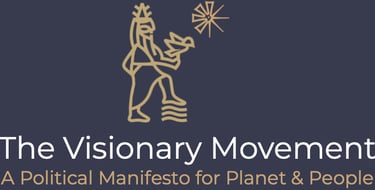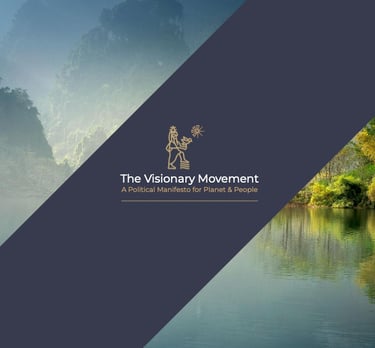UNIVERSAL INCOME
Fixing the system so fewer people ever need a financial safety net.


Reducing the Necessity for Universal Income.
By establishing the policies outlined in this manifesto, the need for universal income in the UK will be greatly reduced.
We must help everyone and so it will remain relevant for a small minority who—despite all of our best efforts—will come to rely on financial support from the state. However, it is worth noting that Switzerland attempted to introduce a Universal Income in 2016. Despite the innovative nature of the proposal, it was decisively rejected, with 76.9% of voters opposing it.
Case Study: Switzerland Page 30 of the Visionary Manifesto
“A universal basic income would be the best way to give everyone the opportunity to do more unpaid but incredibly important work, such as caring for children and the elderly.”
Rutger Bregman
Supporting Everyone's Journey
Not all of us start life from the same privileged position. Whether it's our parents' support or by our own means, some are fortunate, while others struggle.
Our commitment is to ensure that, regardless of their circumstances, every individual has access to the financial assistance they need to thrive and build a brighter future for themselves and their families.
A New, Single Assessment And Allowance
Fairness and equality can only be achieved when we are all measured and supported fairly and equally. The most effective solution may be to simplify the current benefits system and offer a single monthly payment to every adult and child to ensure a dignified standard of living for all residents.
By unifying and coordinating identical departments across the country, we can eliminate duplication of effort, enhance communication, and provide faster, higher-quality services. This approach will reduce human error, identify issues earlier, optimise resource allocation, and ensure transparent and accountable practices.
We believe a fairer, more effective benefits system will maximise taxpayer funds, eliminate waste, and safeguard against fraud and corruption.
Streamlined And Efficient Support: The system ensures a seamless and consistent approach to delivering benefits across the country, reducing duplication of effort and improving service quality.
Enhanced Communication: Improved coordination and communication between departments lead to better information sharing, faster response times, and a more responsive benefits system.
Reduced Errors: By centralising processes and implementing standardised procedures, the system minimises the risk of human error, ensuring accurate and timely benefit allocations.
Early Issue Identification: The integrated approach enables early detection and resolution of issues, preventing delays and ensuring individuals receive the support they need in a timely manner.
Optimal Resource Allocation: By eliminating wasteful practices and unnecessary duplication, resources can be allocated more effectively, maximising the impact of taxpayer funds.
Transparency And Accountability: A unified system promotes transparency, making it easier to monitor and track benefits, reducing corruption and fraud.
Fairer Distribution: The streamlined system ensures that benefits are distributed in a fair and equitable manner, providing equal opportunities for success and well-being for all individuals.
Cost Savings: The elimination of inefficiencies and improved resource management result in cost savings for the government, enabling funds to be redirected to other critical areas of need.
GET IN TOUCH
SUBSCRIBE FOR UPDATES
WhatsApp: +44 (0)7413 47 46 48
© 2025. All rights reserved.


FOLLOW
Support the movement: Make a Donation






